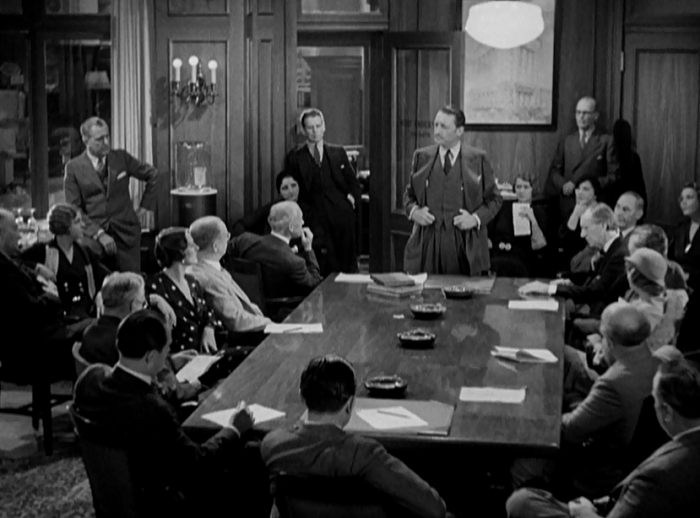
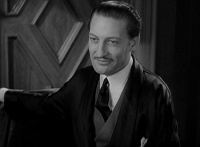 |
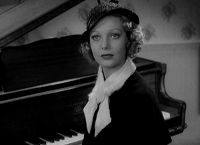 |
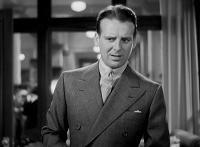 |
| Kurt Anderson … Warren William |
Madeline … Loretta Young |
Martin West … Wallace Ford |
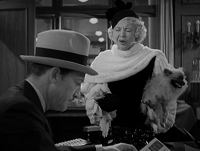 |
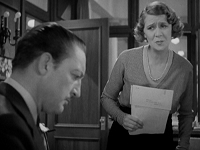 |
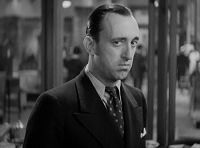 |
| Polly … Alice White |
Miss Hall … Ruth Donnelly |
Sweeney … Allen Jenkins |
Employee’s Entrance: Sorting the Successful From the Failures
I think our antiheroes nowadays have gotten a little too clean under their collars. When I mention the phrase, your mind probably turns to Disney cartoons where the parrot Iago starts to team up with Aladdin, or you race back to The Fast and the Furious series which follows car thieves who live glamorous lives but almost coincidentally end up doing the right thing.
And, sure, the 1930’s had their share of gentlemen thieves, with William Powell taking loot and women’s hearts as he pleased, but when the men and women of the 1930’s got nasty, the film’s often followed along. To modern audience’s, Warren William’s Kurt Anderson is a monster, an almost physical embodiment of the tyrannical power of capitalism. He exploits, he destroys, and, at the end of the day, he continues to do so because it makes everyone more money.
That damns a lot of people along the way naturally. Anderson is the manager of a department store– one of those high class, high prestige places that existed in New York back in the day. In a decade under his reign, the store’s sales have increased more than ten times. He’s ruthless, dismissing senior employees without a shrug and noting, after one jumps out of the store’s ninth floor window, that all men should kill themselves after outliving their usefulness.
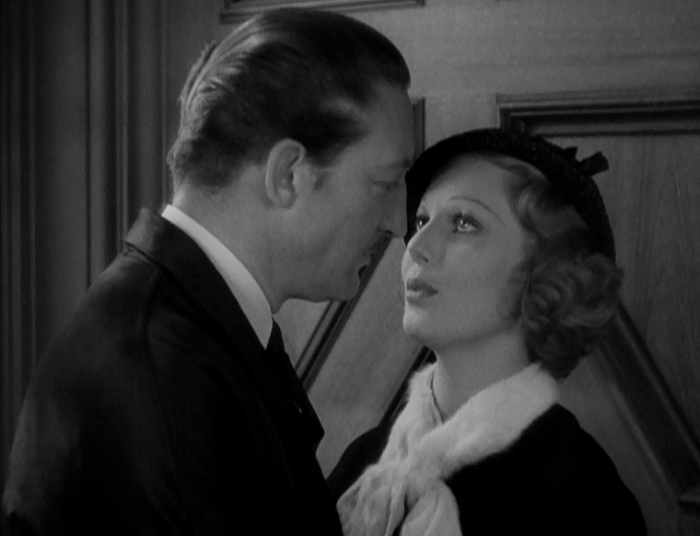
“Seduction.”
If you think Anderson sounds like a bit of a crotchety man, don’t let that fool you. He’s a man of power, and since he’s in charge of hiring, he knows the best way to relax is to trade work for sexual favors. From the female employees, at least. And the male ones… well, we can talk about that more below.
When he discovers Madeline (Loretta Young), a starving girl who has tried to spend the night in the store’s model house (one of the movie’s many moments mocking traditional domesticity). He treats her to a feast and, when she tries to make her way to his apartment’s door, he stops her and demands payment for one brand shiny new job.
Madeline begins working as a model for the store, but the incident clearly unnerved her. While she had been flirtatious to Anderson, it’s quite apparent that she fears ever running into him again. Luckily for her, he’s got other matters on his mind for the moment.
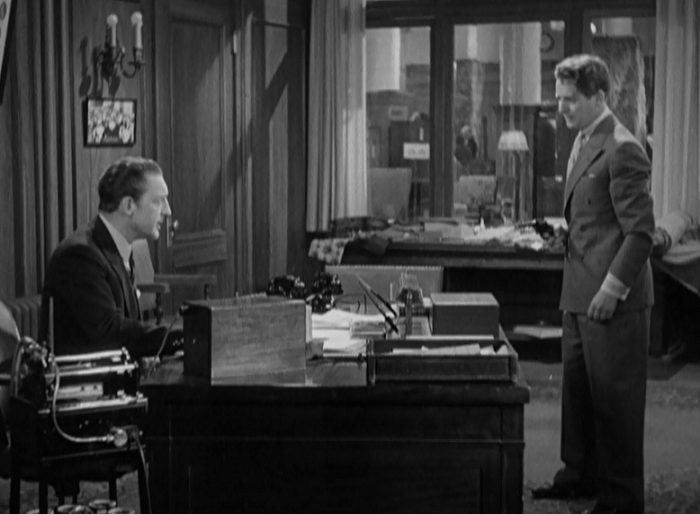
Warren William spends most of the movie behind his desk, a place of power and intimidation.
Where the film turns Anderson purely into an anti-hero rather than a unsympathetic creature is by showing us the people he works for. The store’s owner is Franklin Monroe, who descended from the gene pools of James Monroe and Ben Franklin; again, presumably, these two themselves didn’t procreate on their own. He controls the board of directors along with a portly cousin, and Monroe stays mostly concerned with attending ceremonies and vacationing in the Mediterranean. The rest of the board are a number of bloated bankers, who are only happy when there’s plenty of profit for them to roll in.
The film loves to subvert things, and the American revolution is one of its prime targets. Besides Monroe’s lineage, the often-absent owner continues to send telegrams to the store’s employee’s full of thundering speech and encouragement. He relies on Thomas Paines’ “These are the times that try men’s souls” to refer to the Depression, but it instead reveals an executive who merely continues to buy into the platitudes of the American way with no substantial interest in its actualities. American history is a punchline for the new reality.
Anderson is the epitome of the Depression’s new paradigm, a ruthless businessman who is willing to fight for every dollar. Early in the film we see a bust of Napoleon that fades into Anderson’s hurried face. He’s cruel and heartless, and encourages the same traits in his employees. This is the fate that befalls young Martin (Wallace Ford), an eager to please ideas guy. Anderson promotes him to assistant and demands that every waking moment is spent in service of the company.
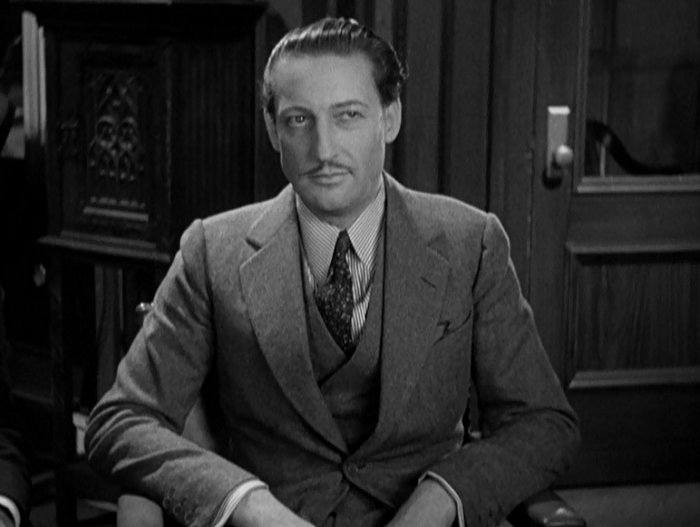
It’s always a good day to be Warren William.
But, wouldn’t you know it, Martin meets Madeline, and after a quick flirtation involving sheet music, they’re married. Unfortunately, Martin’s complete obedience to Anderson, the man who coerced Madeline into sex, kind of puts a damper on the whole thing. Martin keeps his marriage a secret, and things come to a head at a company party. Martin gets trashed and starts singing “Sweet Adeline” and Madeline runs into Anderson again in a side room.
He gets her completely wasted, and offers her his room key so that she can sleep it off. Promising to be a gentleman, he instead waits for her to fall asleep before moving in. And fade out.
I’ve read a quite a few reviews (check out below if you don’t believe me), and I’ve seen the word ‘seduced’ thrown out a surprising number of times. For the 1930’s, that may have been what this was, but taking advantage of a sleeping woman nowadays is far more taboo. And, yes, this Pre-Code film may end with Anderson left virtually unpunished for committing rape.
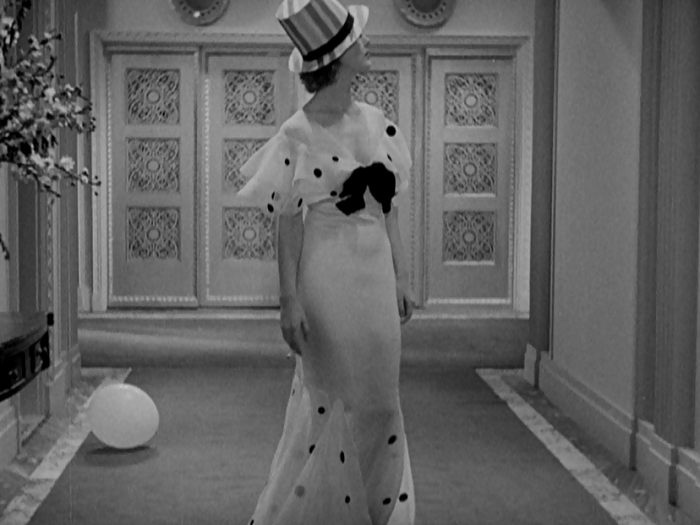
Anyone know which way to a horrifying personal incident?
If you’re baffled at this point what Anderson does that could possibly win himself any sympathy from the audience, his back story seems to offer hints. He was too poor for the girl he loved back in Minnesota, and now he has money, which he promises never to lose. He also does one other key thing: he keeps jobs. When the bankers try to force him out for refusing to cut down the workforce, he rebels and desperately tries to find the wandering Monroe to back him rather than move an inch on his position.
Anderson is pretty human after all. Even though he espouses a firm belief in one night stands, the only woman we ever see or even hear of him interested in is Madeline. Some have speculated that his interest in aggressive young Martin may sublimate (or transfer) his desire for most of the movie, and, indeed, if you call Employees’ Entrance a film with a love triangle, it’s certainly one of the stranger ones out there.
Spoilers
The film’s ending devolves into a jealous lover’s spat, though you’re never entirely sure who’s jealous of who. After Anderson learns of Madeline’s marriage to Martin, he vows to take care of it, which involves Anderson being shot and Madeline attempting suicide. Anderson covers up Martin’s murder attempt (whether that’s from homosexual affection or just plain pity, that’s up in the air), and gets to keep his job at the last possible moment.
He turns cold again, maybe even colder, and gets back to business. That’s what his life is, after all; it looks like without it, he’d have nothing.
End Spoilers
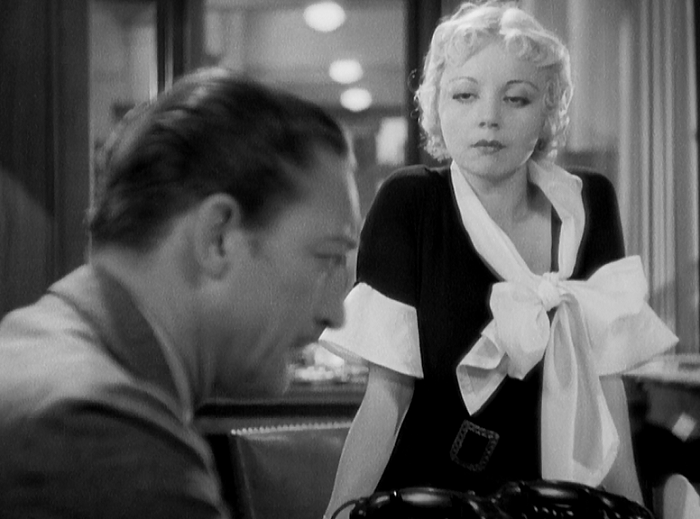
Alice White is fairly unhappy with that ending
And, after saying all of this, I did want to note that the film does often delve into comedy… Yes, comedy! There are different vignettes about the usual assortment of funny customers (a Jewish man recoils at a ‘pigskin’ football, a woman asks which floor the basement is on) and Anderson’s antics can sometimes be hilariously nasty. When he pays Polly to practice seduction Monroe’s cousin for his benefit, the two trade barbs with a cruel glee.
There’s some really clever direction throughout, too. If you go all the way back up to the profiles of the characters near the top of this review, you’ll notice in two of them we’re treated to a hearty side view of Warren William’s wonderful nose. Many of the scenes just gravitate towards William, so most of the movie’s lengthy scenes in his office will either be a full shot of him, or him in the foreground as the person he’s talking to responds. He’s a constant presence here.
And it works because Warren William is so good at being able to play just so bad. Every ounce of conscience he claims to have here can be attributed to other ulterior motives, but every joke he makes lands and every bit of egotism he displays seems genuine and earned. He’s a self-made son of a bitch, and I can’t imagine another actor successfully blending such a despicable, angry creature with such understated sadness.
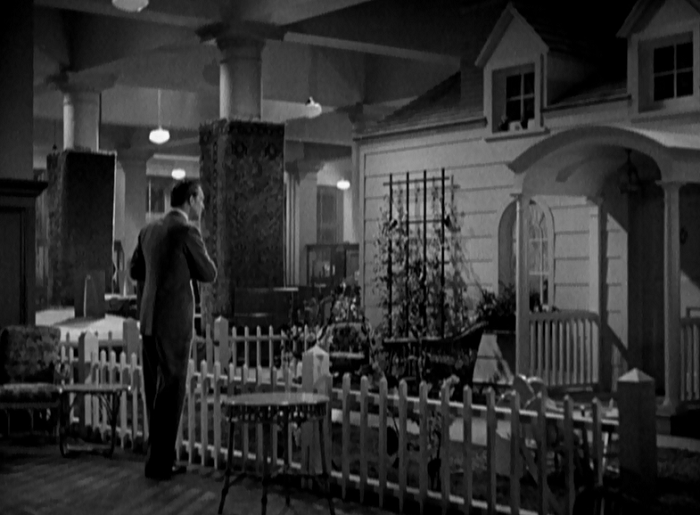
Much like how the film pokes at the Revolutionary ideology, it also takes a swipe at the idea of traditional American families and home. Lecherous Anderson discovers Madeline here, where they will play with the conventions of a domestic life in a demonstration of what a farce the comforts of family had become during the Depression.
The rest of the cast is fine, too. Young plays a drunk extremely well, and is able to make her character seem both independently minded but trapped. A couple of great Warners character actors make a show as Ruth Donnelly pops in as one of Anderson’s secretaries and Allen Jenkins play a store detective. Alice White plays the Polly the seducer with cheer and manages to make the character both funny but broken in some of the same ways as Anderson.
Employee’s Entrance is a hard movie to take, but fascinating and lively. In the end, Kurt Anderson is a monster, and the movie doesn’t try to change that. It admires him as a monster, someone above all the poor fools in the audience, and as someone who could fix this mess. Because, at this point, his kind of action was more admirable than no action at all.
Proof That It’s Pre-Code
- Sex! Rape! Suicide! Scantily clad women! The Great Depression! Look, it’s Pre-Code, trust me on this.
Gallery
Here are some .gifs I captured. Click on any picture to enlarge!
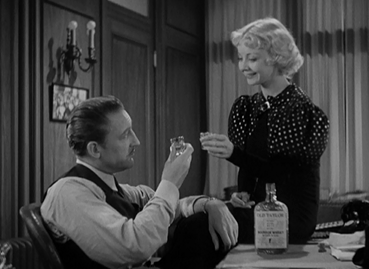
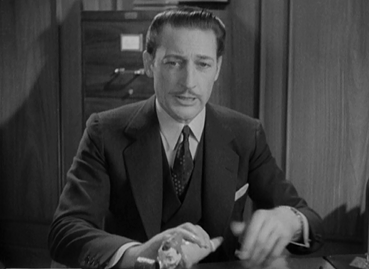
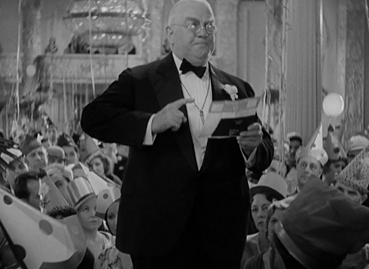
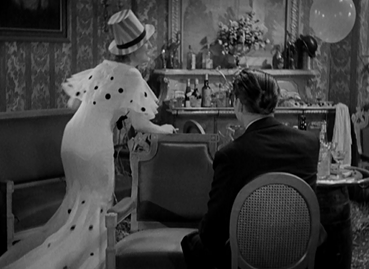
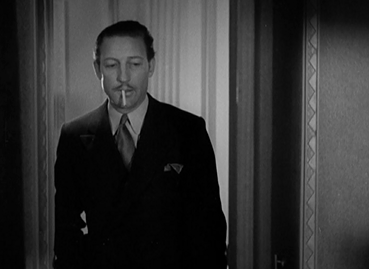
Trivia & Links
- If I seemed to be at a loss for interesting things to say this week, that’s simply because Cliff Aliperti has done an extensive job documenting this, calling it one of his favorite films. His Immortal Ephemera site has more of a general review of the piece, where he explains his fascination with Kurt Anderson comes from the fact that Anderson isn’t the villain of the piece. He uses this as a way to talk about American business ideals during the depression.
- Meanwhile, someone whose name is also coincidentally called Cliff Aliperti over at WarrenWilliam.com covers this and uses this to contrast against Skyscraper Souls, using them to illustrate the difference between Employee’s Warner Brothers and Skyscraper‘s MGM. It’s an interesting read about the era.
- If you thought both Cliff Aliperti and Cliff Aliperti loved this picture, you should read Greenbriar Picture’s lengthy adulation, which treats Kurt Anderson (and Warren William by proxy) with unfettered admiration. Lots of great behind-the-scenes photos and newspaper ads here.
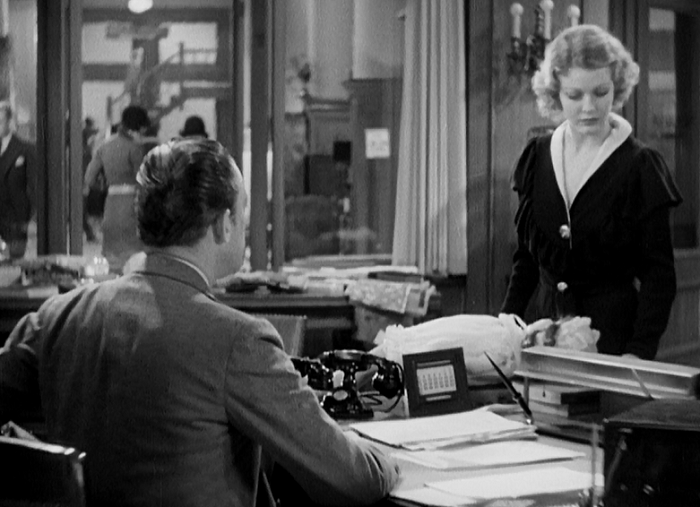
Look, basically every screenshot I’ve got is Warren William sitting behind a desk. It’s that kind of filM!
- A posting over on Nitrateville talks about how a clip of Anderson’s meeting with Polly, where he says, “I didn’t recognize you with your clothes on!”, was used in Warner Brothers’ internal sexual harassment seminars. They say it’s to demonstrate what not to do, but you never know…
- Will McKinley at Cinematically Insane talks about the pleasure that comes from watching the movie with a crowd, and a few other Pre-Code gems that were screened earlier this year.
- Karen over at Shadows and Satin enjoys the film and talks about Alice White’s performance.
- Laura (she of Miscellaneous Musings) finds Willam’s character unsympathetic and the movie doesn’t do much for her.
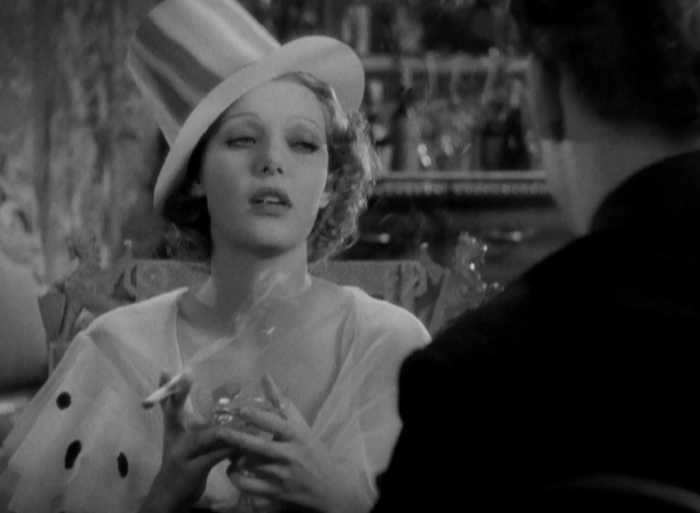
There’s Warren, lurking in the foreground again. Go away, Warren!
- Mordaunt Hall for the New York Times is cautiously pleased with the film. He finds Warren William to be fascinating, and, even if he doesn’t buy the film’s premise, it intrigues him deeply.
- Movie Diva uses the film to discuss director Roy Del Ruth, and how Loretta Young’s late-life image control tried to make the public forget about the movies she made like this one: risque and daring.
- Adorable Pre-Code dog alert:
- One important addendum to any Employees’ Entrance drinking game (finish the drink for every sexual assault!) is to do a shot every time you click on one of the above reviews and see a comment from either Cliff Aliperti or Cliff Aliperti. Dude loves this movie!
- Lastly, TCM’s Movie Morlocks look at Warren William’s career, and pick out their favorite movies of his.
Awards, Accolades & Availability
- Featured in Wikipedia’s List of Pre-Code Films.
- This film is available in the Forbidden Hollywood, Volume 7 set, and from Amazon and Warner Archive, and can be rented from Classicflix.
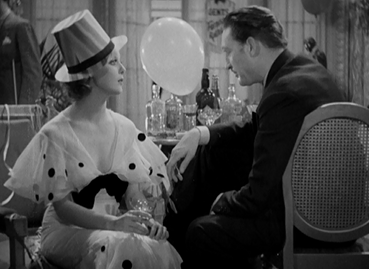 |
Comment below or join our email subscription list on the sidebar!Home | All of Our Reviews | What is Pre-Code? |

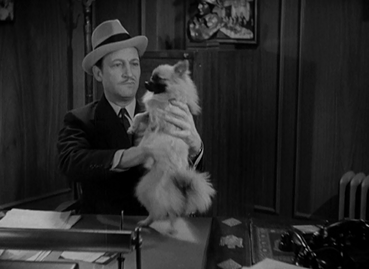
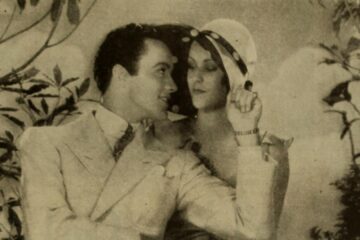


15 Comments
Cliff Aliperti · May 31, 2013 at 8:40 am
Oh yeah! Thanks for the serial mentions, the drinking game one really got me. This is my top pre-Code to hook non-fans on. I find that this followed-up with Baby Face usually buys me a lot of leeway towards slipping in some riskier choices afterwards.
This is definitely the movie that hooked me on Warren William–I had the good luck of picking up both Employees’ Entrance and Skyscraper Souls on VHS at the same time … and I’m very glad that Warner Archives new Forbidden Hollywood set will give new fans a chance to discover them together as well.
But besides the attitude Warren William brings to the characters of Kurt Anderson and David Dwight, and I think each have as much good as bad in them, what’s especially hooked me in for repeated viewings of Employees’ Entrance is that department store. Those elevator doors feel like a time machine directly to the Great Depression (yeah, as if I were there). While it doesn’t take you to the Depression extreme (no ridin’ the rails here) it gives what I imagine to be a fantastic portrayal of hard times for the working class.
I’ve got to cut myself off here–could write on and on about this, and apparently I have. And probably will some more in the future. Thanks again, Danny! So glad you enjoyed this one and really appreciate the mentions.
Danny · June 1, 2013 at 6:12 pm
I like what you’re saying about the department store as a time machine to the Depression, and I think this movie does a great job of subtly poking at the social problems of the era without making it leap out at the viewer. It’s incredibly well made, and does a great balancing rope act in regards to making Anderson not only likeable but someone you’d want to root for in spite of his copious misdeeds.
Also, take a shot.
justjack · June 1, 2013 at 11:20 am
The Essence of Pre-Code. And what plot; you never know how the story is going to play out from scene to scene. Warren William rules in this picture. Showing the board of directors as a layer above him is a brilliant way to keep us from thinking of him as merely a ruthless Napoleon. He, too, has bosses to whom he has to answer. Great movie, and great review.
Danny · June 1, 2013 at 6:02 pm
Thanks, and you’re right: the film really humanizes the Anderson character than what you’ll get with most boss roles nowadays where they’re simply mincing tyrants. The board of directors here are the direct public enemies of the depression: the bankers and old money. The worst part is that they almost get away with it.
Caren · June 1, 2013 at 1:22 pm
I saw this film a few years ago and I loved it. It definitely warrants viewing again as sadly my memory is shoddy. When Warners next has a sale, I will be purchasing Vol. 7. so I may covet it! My copy of Ex-Lady is good but “grey”, so a toney version is always lovely to own. Still haven’t seen the other two. And I’m hoping TFS will be doing a follow up pre-Code weekend if I can get the majority of other board members on board! Thanks for all the work Danny.
Danny · June 1, 2013 at 5:56 pm
Yeah, luckily the Archive has been churning out the sales lately, so the price will get a little better soon. I picked it up already since I’m starting to feel a weird sense of duty to support this stuff beyond rentals.
And if the TFS ever does another event, let me know. As long as I don’t lose another relative, I’ll be available. 🙂
dawn · June 1, 2013 at 7:59 pm
One of my favorite pre-code actors, William Warren is excellent in the role of the ruthless boss with his eye on married sales girl Loretta Young.
Loretta Young, is absolutely beautiful, in a film that is very much worth watching..
Love the cute dog gif..
Danny · June 2, 2013 at 1:53 pm
The cute dog gif is something I hope to do more of. The more cute dogs immortalized, the better!
PreCode Princess · June 2, 2013 at 2:38 am
Just discovered your site a few days ago and am really enjoying your reviews. It’s nice to know there are others out there who appreciate pre codes as much as I do. They are an important part of film history that most know nothing about.
Been mildly obsessed with WW after seeing him in Skyscraper Souls a few years ago and just saw this one last week. I have to say it may edge out Skyscraper as my new favorite of his.
His portrayal of Anderson is completely ruthless and lacks any conscience whatsoever. In my book, his only redeeming quality is that he lays this out for you on a silver platter and makes no bones about who he is or what hes after. You either go along with it or get smashed. I find this attitude strangely refreshing.
But as awful as he is, I still would have hit the sheets with him. Therein lies the charm of WW! King of pre code indeed.
“I didn’t recognize you with your clothes on.” One of the funniest lines in pre code.
Danny · June 2, 2013 at 1:56 pm
Thanks for reading, I appreciate it! And as for hitting the sheets with Kurt Anderson, well, uh, there you go. You may enjoy WarrenWilliam.com if you haven’t hit it yet, though I’m unsure if there are any sexy photos of Warren there or not. We can only hope, right?
PreCode Princess · June 4, 2013 at 7:49 pm
Oops…my tablet freaked out for a minute. Meant to write thanks and I have seen both of Cliff’s sites and they’re great.
Keep up the good work!
Cliff Aliperti · June 4, 2013 at 7:52 pm
I’ll pop in to add my own thanks for that–thank you!
Charles T. Jones · January 15, 2015 at 5:36 am
I’d like to see the original ending as shot by del Ruth, as opposed to the slap-dash ending with the half-masked stand-in on the hospital bed with her face half-turned toward Ford and away from the camera. Clearly, Young was unavailable for the reshoot, and the studio thought it could get away with an approximation of Young’s eyes, and Ford lamely saying, ‘We’ll work it out,’ leaving Williams the vindicated hero, and Young’s character not dead.
Vidor · September 13, 2020 at 12:48 pm
This movie is now on the National Film Registry.
Comments are closed.